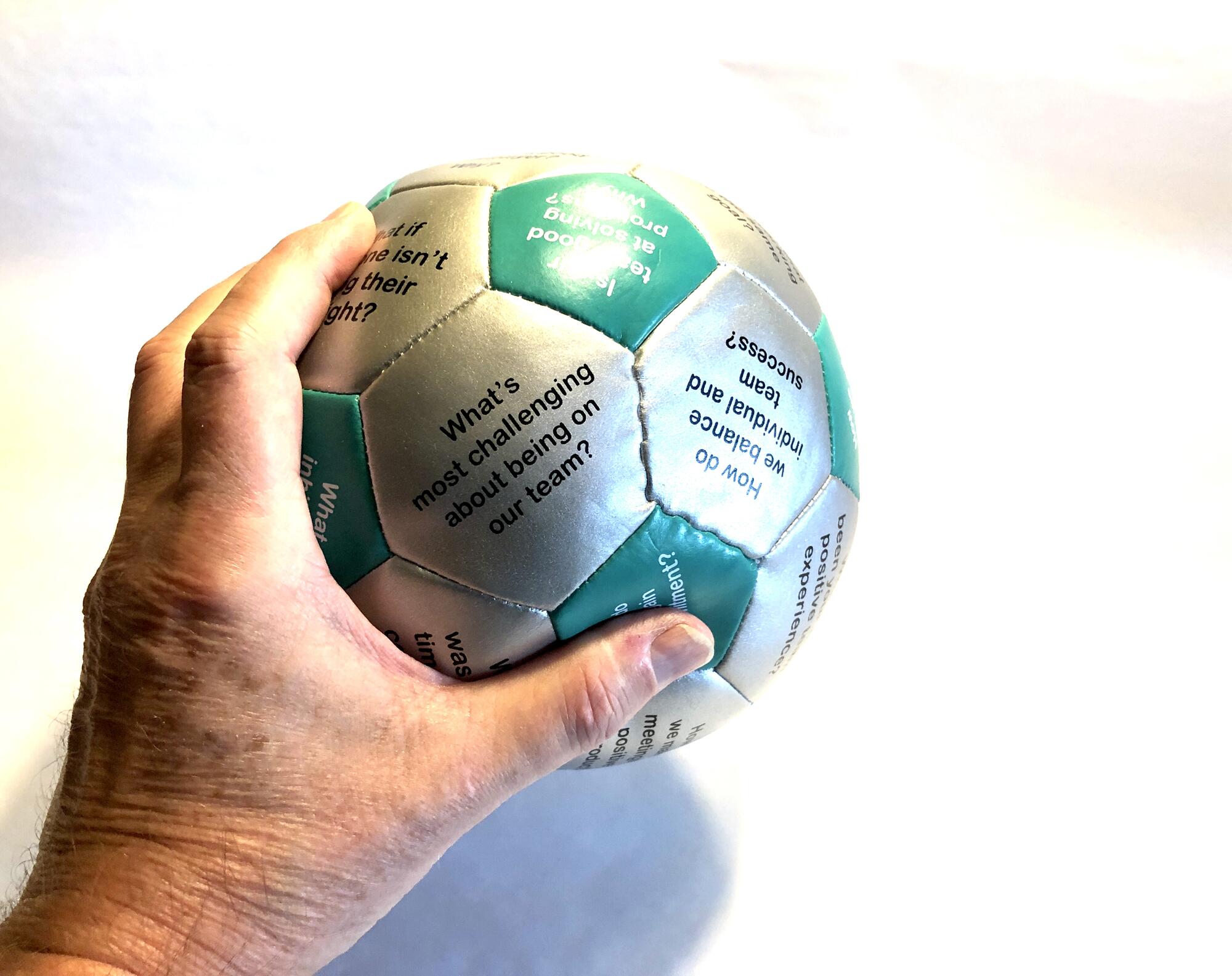-
FISH! CULTURE
- TRAINING & WORKSHOPS
-
DIY TEAM TALK TOOLS
- Picture cards for DIY exercises
- Books and posters
- Democratic dialogue and conversation - DIY
- Dialogue- and conversatiions cards for DIY exercises
- The Core Game and Social Capital talk - DIY
- Creativity tools for DIY cool ideas
- Harassment and Conflicts DIY conversations
- Meeting icebreakers & gadgets DIY
- Northgate Training Activities
- Experiential Learning from RSVP DIY
- Playmeo DIY cool tools
- Starter Kits DIY
- Team building DIY tools & toys
- Thumballs DIY meeting balls
- Low cost development - DIY
- INFINITE DIY Questions Games
- UPTION DIY conversation card games
- Video with DIY training
- LEAD YOUR TEAM
- LEAD YOUR LEADERS
- LEAD YOUR MEETINGS
- BLOG FOR LEADERS

Thumballs for all team thumbs
How it works: Someone throws the ball, another catches it and responds to the prompt under their thumb.
Facilitation tip 1: Explain …
In order to achieve greatness, sometimes teams need to take a step back and reflect on their relationships, communication and their process of working together. Tailor your Thumball game to meet your needs:
Option 1: Have each player respond only to the prompt under their thumb, then toss the ball to another.
Option 2: After the first player has responded to their prompt, invite others to share their perspective or discuss ways they could work together more effectively.
Facilitation tip 2: Set ground rules
Explain that conversations about team dynamics can become emotionally charged. The goal of the Team Dynamics Thumball activity is to raise important issues and have necessary conversations in a positive environment. So that everyone can feel safe, have the group set up their own Ground Rules.
Here are some that you might want on the list:
-
Only one person speaks at a time.
-
Speak only for yourself: Use ‘I’ statements.
-
No personal attacks - critique ideas, not people.
-
Agree to disagree: disagree without being disagreeable.
-
Listen - make sure everyone feels heard and validated.
-
Be positive and non-judgemental; open to new ideas.
Facilitation tip 3: If conversation get sticky
Expert facilitators suggest these techniques to ease difficult or emotional situations:
-
Pause the conversation so you can review the ground rules with the group.
-
Redirect negative comments: ask ‘what can we do differently?’
-
Focus on changes that can positively affect the team.
-
If two parties disagree, suggest that they switch roles and make the counter argument.
-
Keep a flip chart of difficult topics that can be addressed later.
-
Be ready to share some of your own experiences.
-
Take a break. Stop for awhile and regroup.
-
Thank participants for sharing their personal stories.



